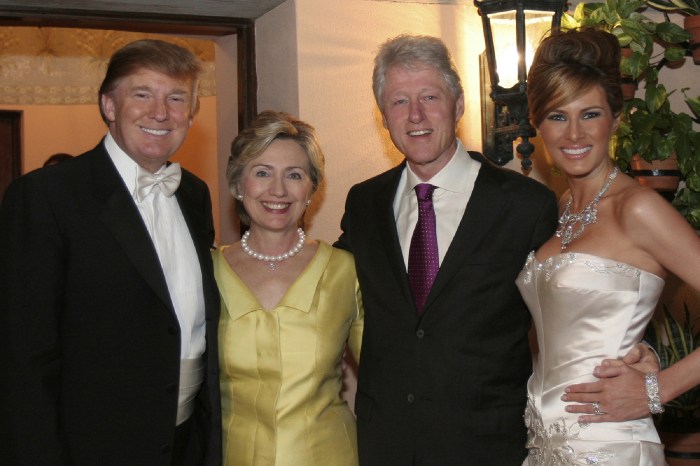The rise of Trump and the crypto-fascist movement that crushed establishment Republicans is half of the story. The sharp move among many white middle American voters away from Beltway Republicanism toward something far darker and more dangerous crystalized in 2015-16. So it has to be studied over and over.
But there is an ugly thing on the other side that also began at that time.
This is when establishment Democrats began to openly lose faith in democracy and civil liberties and began to promote a "results over process" mode of political thinking. It's when we started hearing serious people in Washington talk about the dangers of "
too much democracy."
This isn't about Hillary Clinton. It's about a broader movement that took place within the Democratic establishment, and spread rapidly to blue-friendly media and academia.
It's a kind of repeat of post-9/11 thinking, when suddenly huge pluralities of Americans decided the stakes were now too high to continue being queasy about things like torture, extralegal assassination, and habeas corpus.
In the age of Trump, we're now throwing all sorts of once-treasured principles – press ethics, free speech, freedom from illegal surveillance – overboard, because the political stakes are now deemed too high to cede ground to Trump over principles.
But this distrust of democracy began before Trump was even a nominee. As Brazile notes, it started within the ranks of the Democratic Party near the outset of the campaign.
It would have been a huge boon to Clinton's run if the DNC had welcomed not only Sanders but other serious candidates into the race, in the true spirit of what the primary process is supposed to represent – the winnowing of many diverse views into one unified message.
But the attitude in Washington is now the opposite. Primary challengers are increasingly seen as reprobates who exist only to bloody the "real" candidate. So they should be kept down and discouraged whenever possible.
As the campaign continued, and we saw both Trump's rise and results like Brexit, the "too much democracy" argument began to emerge even more, along with the embrace of techniques that would have horrified true liberals a generation ago.
In the last year, we've seen the blue-state establishment celebrate the use of the
infamous FISA statute against American citizens, and the use of
warrantless electronic surveillance against the same.
We've seen the ACLU
denounced for defending free speech and we've seen sites like
Buzzfeed celebrated for publishing unverified and/or slanderous material, usually because the targets are politically unpopular.
Liberals used not to believe in doing these things not only because they understood that they would likely be the first victims in a society stripped of civil protections (a school district
forcing the removal of Black Lives Matter stickers is a classic example of a more probable future in a world without civil liberties).
No, they eschewed these tactics because they genuinely believed that debate, discussion, inclusion and democracy brought out the best in us.
The point of the Brazile story isn't that the people who "rigged" the primary were afraid of losing an election. It's that they
weren't afraid of betraying democratic principles, probably because they didn't believe in them anymore.
If you're not frightened by the growing appeal of that line of thinking, you should be. There is a history of this sort of thing. And it never ends well.









